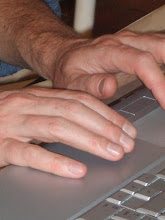This new telling of John le Carre's spy thriller somehow manages to feel longer than the seven-part BBC series that predates it by thirty years.
It's not a bad movie, just a tad ponderous. Could the director's detailed recreation of shabby 1970s London have come at the expense of a more compelling narrative flow?
In its favour, the Gentleman's club aura that was evoked in the BBC version is completely stripped away. This 'circus' is made up of a bunch of ugly, hacked-off, lower-middle class spooks.
At its quiet centre is Gary Oldman as George Smiley. He has been praised for wresting the Smiley character from the long shadow of Alec Guinness. Maybe, but for my money he sounded remarkably like him.
Friday, 16 September 2011
Thursday, 8 September 2011
Prom 70/RAH
God, so long since I've blogged. Have you missed me?...deafening silence.
I've only been to two Proms this year (but have heard plenty on the radio) mainly because South Ken is such a schlep but also because of my long term downer on the Royal Albert Hall as a suitable venue for classical music (mathewtucker passim).
However, there are one or two pieces in the repertoire I've always fancied hearing there, one of which, The Planets, was on show last night. My main fascination has been the work's final movement - Neptune - which Holst concludes with an off-stage female chorus. How would this, probably one of the most ethereal works of the twentieth century, come across in the Royal Albert Hall's cavernous space? It was too good a prospect to turn down. Thankfully, the hall and the combined forces of the BBC Symphony Orchestra and the Holst Singers didn't disappoint.
The orchestra, under David Robertson, had to visit six other planets before we got there, an amazing journey that explored every nook and cranny of orchestral timbres. And if Robertson's tempos ebbed and flowed rather awkwardly at times, it was none the less the most blistering account of the work one could ever hope to encounter. The audience paid absolutely no attention to convention, bursting into applause after each movement that was reciprocated by Robertson with his little nods and smiles of appreciation (no purist he).
And so to Neptune, Holst's final stop in space. Even before the movement started, eyes in the arena were being averted to the upper reaches of the hall in expectation of the off-stage female chorus. Then, out of nowhere, the faint and wordless sounds of the singers emerged from the darkest corner of the gallery (yes, such a place does exist, I've been there and it's lovely). So faint in fact they really could have been singing from outer space. As their voices grew in volume, the entire audience craned their necks upwards in Spielbergian awe. You could have heard a pin drop in that arena.
Then it was over. A piece of Albert Hall magic. My only regret is that the singers who had been invisible throughout, did not appear for the tumultuous applause at the end, but they had probably flown away by then.
I've only been to two Proms this year (but have heard plenty on the radio) mainly because South Ken is such a schlep but also because of my long term downer on the Royal Albert Hall as a suitable venue for classical music (mathewtucker passim).
However, there are one or two pieces in the repertoire I've always fancied hearing there, one of which, The Planets, was on show last night. My main fascination has been the work's final movement - Neptune - which Holst concludes with an off-stage female chorus. How would this, probably one of the most ethereal works of the twentieth century, come across in the Royal Albert Hall's cavernous space? It was too good a prospect to turn down. Thankfully, the hall and the combined forces of the BBC Symphony Orchestra and the Holst Singers didn't disappoint.
The orchestra, under David Robertson, had to visit six other planets before we got there, an amazing journey that explored every nook and cranny of orchestral timbres. And if Robertson's tempos ebbed and flowed rather awkwardly at times, it was none the less the most blistering account of the work one could ever hope to encounter. The audience paid absolutely no attention to convention, bursting into applause after each movement that was reciprocated by Robertson with his little nods and smiles of appreciation (no purist he).
And so to Neptune, Holst's final stop in space. Even before the movement started, eyes in the arena were being averted to the upper reaches of the hall in expectation of the off-stage female chorus. Then, out of nowhere, the faint and wordless sounds of the singers emerged from the darkest corner of the gallery (yes, such a place does exist, I've been there and it's lovely). So faint in fact they really could have been singing from outer space. As their voices grew in volume, the entire audience craned their necks upwards in Spielbergian awe. You could have heard a pin drop in that arena.
Then it was over. A piece of Albert Hall magic. My only regret is that the singers who had been invisible throughout, did not appear for the tumultuous applause at the end, but they had probably flown away by then.
Subscribe to:
Posts (Atom)
